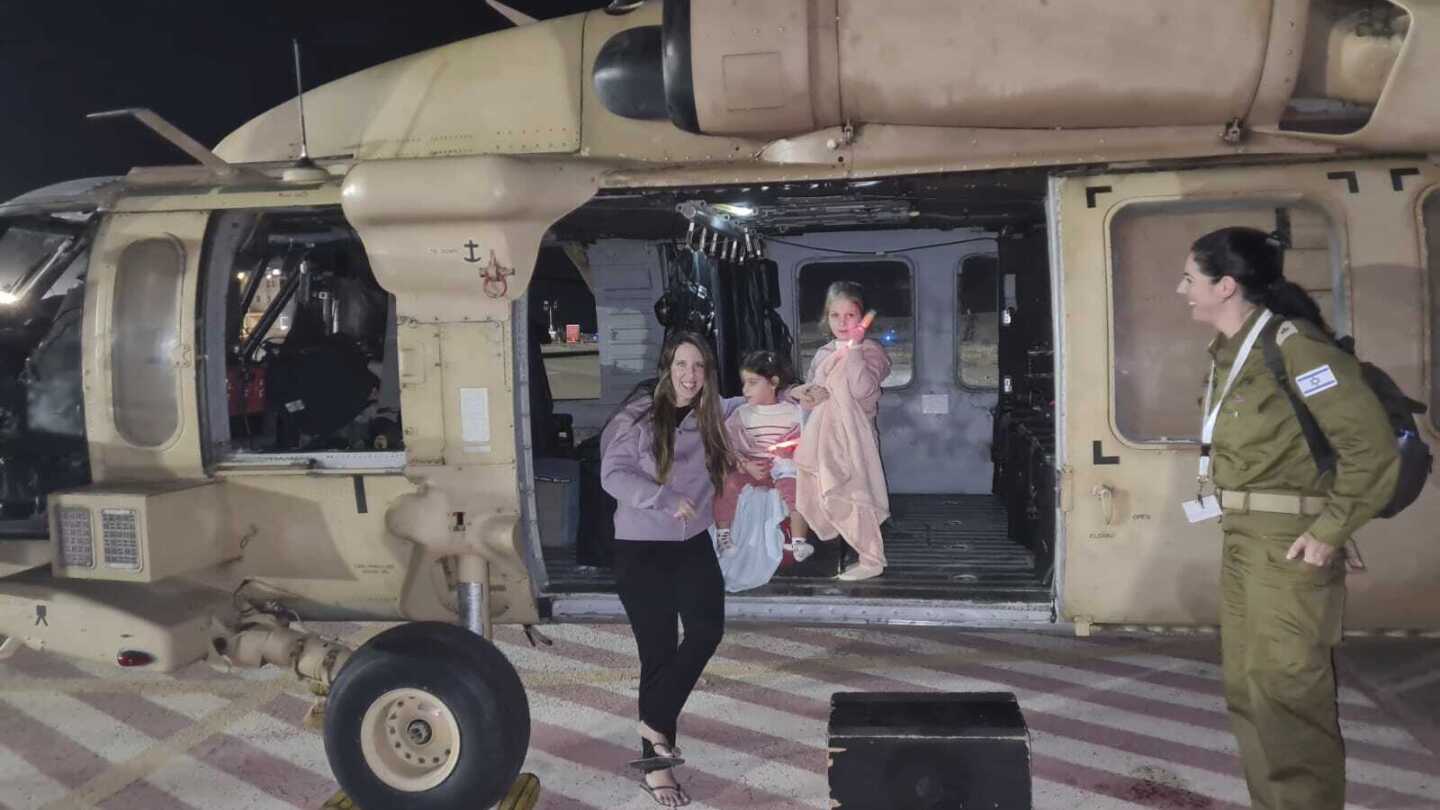TEL AVIV, Israel (AP) — Tantrums, tears, temperature, toilet accidents. These travails of childhood are familiar to any parent. But for Doron Katz Asher, the daily whims of children took on a new, frightening dimension while in Hamas captivity with her two young daughters.
If the girls cried, militants would bang on the door of the room where she was being held. When they were hungry, she didn’t always have anything to feed them. She slept with one eye open, always keeping watch over her daughters.
“(I felt) Fear. Fear that maybe because my daughters are crying and are making some noise they’ll get some directive from above to take them, to do something to them,” Katz Asher told Israel Channel 12 TV in a lengthy interview broadcast Saturday night. “Constant fear.”
Her account builds on a growing number of freed captives who are sharing their harrowing stories of weeks in captivity even as roughly 129 hostages remain.
Katz Asher, 34, and her daughters Raz, 4, and Aviv, 2, were visiting family in Kibbutz Nir Oz when Hamas attacked the sleepy farming community on Oct. 7. Katz Asher, her daughters and her mother were put on a tractor and driven to Gaza. An exchange of fire erupted between the militants who snatched them and Israeli forces, killing her mother and leaving her and Aviv lightly wounded, she said in the interview. They were part of some 240 people taken captive that day whose plight has stunned and gripped Israelis.
After they made it to Gaza, Katz Asher said she and her daughters were taken to a family’s apartment, where her wounds were stitched up without anesthetics on a couch as her girls looked on. She did not say if Aviv was treated.
The father of the house spoke Hebrew, which he said he had learned years earlier working in Israel. A Palestinian mother and two daughters served as their guards for the 16 days they were held in the home. They were told to keep quiet, but were given coloring pencils and paper and passed the time drawing. Katz Asher said she started teaching her 4-year-old how to write in Hebrew. The first word she taught was “aba,” or “dad.”
As the sounds of the Israeli military’s fierce bombing campaign rang out around them, her captors fed her false hope, telling her a deal was imminent for their release. She and her daughters would eventually be freed in a temporary cease-fire deal in late November.
With food running low at the family home, one night she was dressed in Muslim attire that concealed her identity and she and her daughters were forced to walk for 15 minutes to a hospital that was not named in the interview, where they were sealed in a room with other Israeli captives who she recognized. Ten people were locked together in a 130-square-foot (12-square-meter) room with a sink but no mattresses. The window was sealed shut, food was inconsistent and using a toilet hinged on the permission of the captors.
“They could open after five minutes or after an hour and a half,” she said, echoing similar testimony from other freed captives. But, she added, “small girls can’t hold it.”
Katz Asher said one of her daughters had a fever of 104 degrees Fahrenheit (40 degrees Celsius) for three days straight. To bring it down, she ran cold water over her forehead.
They made a deck of cards and drew the foods they badly missed to pass the time. Katz Asher saved her own small portions of food — pita with spreadable cheese and spiced rice with meat — so that her daughters wouldn’t go hungry.
Her daughters had an incessant list of questions about their ordeal, the innocence of a child’s curiosity colliding with an inexplicable calamity. “When will we return to dad at home? And when will they return to day care? And why is the door locked? Why can’t we just go home? And how will we even know the way home?”
All the while, with dread engulfing her, Katz Asher said she projected calm to her daughters, promising them, and perhaps herself, they would go home soon.
“What helped me survive there was that my daughters were with me,” she said. “I had something to fight for.”
___
Find more of AP’s coverage at https://apnews.com/hub/israel-hamas-war

